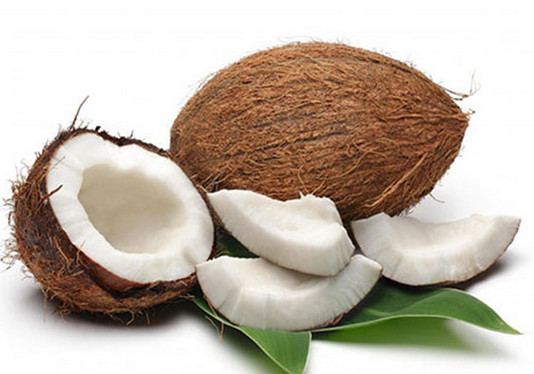Hydrogenated coconut oil is a type of coconut oil that has been processed using hydrogenation, a chemical process that adds hydrogen atoms to the oil in order to create a more solid, stable, and shelf-stable product. While hydrogenation can be used to create a range of different types of oils, hydrogenated coconut oil is a popular option due to its mild flavor, versatility, and relatively low cost.
Hydrogenated Coconut oil production line :
Hydrogenated coconut oil is commonly used in a variety of different applications, including cooking, baking, and food production. It is often used as a replacement for other types of solid fats, such as butter or shortening, due to its unique properties and lower cost. It is also commonly used in the production of processed foods, such as snack foods, baked goods, and other packaged foods.
How To Make Cold Pressed Coconut Oil :
One of the primary benefits of hydrogenated coconut oil is its ability to withstand high temperatures without breaking down or going rancid. This makes it an ideal choice for cooking and baking, as it can be used in a range of different recipes without becoming damaged or losing its quality. In addition, hydrogenated coconut oil has a long shelf life, making it a convenient choice for food producers and manufacturers who need a stable and long-lasting ingredient.

However, there are also several concerns and potential drawbacks associated with hydrogenated coconut oil. One of the primary concerns is the fact that hydrogenation creates trans fats, which are a type of unhealthy fat that has been linked to a range of negative health outcomes, including heart disease and stroke. While not all hydrogenated coconut oil contains trans fats, it is important to read labels carefully and choose products that are labeled as trans fat-free.
In addition, some studies have suggested that the saturated fat content in coconut oil, including hydrogenated coconut oil, may not be as healthy as once believed. While coconut oil has been marketed as a healthy alternative to other types of oils due to its medium-chain triglycerides (MCTs), which are a type of healthy fat, some research has suggested that the high saturated fat content of coconut oil may negate these benefits.
It is important to note that not all coconut oils are created equal, and the type of coconut oil used can have a significant impact on its health benefits and potential drawbacks. Unrefined, virgin coconut oil is considered to be the healthiest type of coconut oil, as it is minimally processed and retains its natural nutrients and flavor. Refined coconut oil, which may or may not be hydrogenated, is a more processed version of coconut oil that has a milder flavor and may not contain the same beneficial nutrients as virgin coconut oil.
In addition to its use in food production, hydrogenated coconut oil is also commonly used in personal care products, such as soaps, lotions, and cosmetics. While coconut oil is generally considered to be a healthy and natural ingredient in skincare products, the hydrogenation process can alter its properties and potentially decrease its benefits. As with food products, it is important to read labels carefully and choose skincare products that use high-quality, minimally processed coconut oil.
Overall, hydrogenated coconut oil is a versatile and affordable ingredient that is commonly used in a range of different applications. While it can provide a stable and convenient option for cooking and food production, it is important to be aware of the potential drawbacks and health concerns associated with hydrogenation and saturated fat consumption. When choosing coconut oil or coconut oil-based products, it is important to look for high-quality, minimally processed options that are free from harmful additives or chemicals.
In recent years, there has been a growing trend towards natural and organic products, including coconut oil. As consumers become more aware of the potential negative impacts of hydrogenated oils and other processed ingredients, there has been a shift towards unrefined, virgin coconut oil and other minimally processed alternatives. These types of coconut oils are often marketed as healthier and more sustainable alternatives to hydrogenated coconut oil and other processed oils.
One of the key benefits of unrefined, virgin coconut oil is its nutrient profile. Unlike hydrogenated coconut oil, which may lose some of its nutrients during processing, virgin coconut oil retains many of its natural vitamins and minerals, including lauric acid, a medium-chain fatty acid that has been linked to several health benefits. In addition, virgin coconut oil is rich in antioxidants, which can help protect the body against free radical damage and other types of oxidative stress.
Another advantage of unrefined, virgin coconut oil is its versatility. While hydrogenated coconut oil is often used primarily for cooking and baking, virgin coconut oil can be used in a wide range of applications, including skincare, haircare, and natural remedies. For example, it is commonly used as a moisturizer, hair conditioner, and massage oil due to its nourishing and hydrating properties. In addition, some natural health practitioners recommend coconut oil as a treatment for a range of conditions, including digestive issues, oral health problems, and skin conditions.
When it comes to sustainability, the production of unrefined, virgin coconut oil can have both positive and negative impacts. On the one hand, organic coconut farming can promote sustainable agriculture practices, including crop rotation, composting, and intercropping, which can help maintain soil health and biodiversity. In addition, organic coconut farming can provide economic opportunities for small-scale farmers and rural communities.
However, there are also concerns about the environmental impact of coconut farming, particularly in regions where coconut farming is expanding rapidly. Clearing land for coconut farming can lead to deforestation, soil erosion, and other forms of environmental degradation, which can have negative impacts on local ecosystems and communities. In addition, the transportation and distribution of coconut oil and other coconut products can have a significant carbon footprint, particularly when products are shipped long distances.
To address these issues, it is important to look for coconut oil and other coconut products that are sustainably sourced and produced using organic and fair trade practices. This can help ensure that the environmental and social impacts of coconut farming are minimized, while also promoting the use of healthy and nutritious ingredients.
In conclusion, while hydrogenated coconut oil has been a popular ingredient in food production and personal care products for many years, there are growing concerns about its potential health and environmental impacts. Unrefined, virgin coconut oil is a healthier and more sustainable alternative that retains many of the natural nutrients and benefits of coconut oil without the negative effects of hydrogenation. As consumers become more conscious of the impact of their choices on their health and the environment, there is a growing demand for natural and organic coconut products that can promote sustainable agriculture and healthy living.


